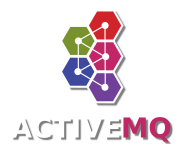zOS
Connectivity > Containers > zOS
Running ActiveMQ Classic on z/OS
It is relatively straightforward to run the ActiveMQ Classic broker on z/OS.
There are a couple of steps:
1. Copy ActiveMQ Classic to z/OS
2. Modify the configuration
3. Run using JZOS
4. Test
Copy ActiveMQ Classic to z/OS
- Ensure that the 1.5 JVM is available on z/OS, together with the JZOS component.
- Download the .zip version of ActiveMQ Classic from Apache.
- FTP the broker to a suitable directory in USS.
- Log into USS using rlogin or whatever has been configured at your site to do a login into USS.
- Extract the zip file using the command: jar -xvf apache-activemq-5.0.0.zip
- This will extract the whole package in ASCII, so do not except any of the files to be viewable on z/OS, except using special editors suitable for ASCII.
- Maybe rename the directory to which the files were extracted to something shorter or create a softlink for more convenient access.
Modify the configuration
Currently, the Jetty plugin does not work on z/OS, so need to be disabled in the activemq.xml file.
- FTP the activemq.xml file from the conf directory in the ActiveMQ Classic installation to your PC in binary mode.
- Edit the XML file using your XML editor or a text editor like Wordpad.
- Search for “jetty” in the XML.
- Change the comment block so that jetty is completely commented out.
- Save the file.
- FTP the file back into the location on z/OS it came from, again in binary mode, so that it is preserved as an ASCII file.
Run using JZOS
I have renamed the lib/optional directory in USS and shortened some of the lib/optional jar names to make the JCL easier to handle. The JCL to run the ActiveMQ Classic broker is then:
`ACTIVEMQ.JCL**
//ACTIVEMQ JOB (),
// CLASS=A,
// MSGCLASS=X,
// MSGLEVEL=(1,1),
// NOTIFY=&SYSUID,
// REGION=0M,
// TIME=1440
//PROCLIB JCLLIB ORDER=
export PATH=/bin:”${JAVA_HOME}”/bin:
LIBPATH=/lib:/usr/lib:”${JAVA_HOME}”/bin LIBPATH=”$LIBPATH”:”${JAVA_HOME}”/bin/classic export LIBPATH=”$LIBPATH”:
CLASSPATH=”${JAVA_HOME}/lib/tools.jar” CLASSPATH=”$CLASSPATH”:”$AMQ_HOME/conf” CLASSPATH=”$CLASSPATH”:”$AMQ_HOME/activemq-all-5.0.0.jar” CLASSPATH=”$CLASSPATH”:”$AMQ_HOME/bin/run.jar” CLASSPATH=”$CLASSPATH”:”$AMQ_HOME/bin/wrapper.jar” CLASSPATH=”$CLASSPATH”:”$AMQ_HOME/lib/activation-1.1.jar” CLASSPATH=”$CLASSPATH”:”$AMQ_HOME/lib/activemq-console-5.0.0.jar” CLASSPATH=”$CLASSPATH”:”$AMQ_HOME/lib/activemq-core-5.0.0-tests.jar” CLASSPATH=”$CLASSPATH”:”$AMQ_HOME/lib/activemq-core-5.0.0.jar” CLASSPATH=”$CLASSPATH”:”$AMQ_HOME/lib/activemq-jaas-5.0.0.jar” CLASSPATH=”$CLASSPATH”:”$AMQ_HOME/lib/activemq-web-5.0.0.jar” CLASSPATH=”$CLASSPATH”:”$AMQ_HOME/lib/camel-core-1.2.0.jar” CLASSPATH=”$CLASSPATH”:”$AMQ_HOME/lib/camel-jms-1.2.0.jar” CLASSPATH=”$CLASSPATH”:”$AMQ_HOME/lib/camel-spring-1.2.0.jar” CLASSPATH=”$CLASSPATH”:”$AMQ_HOME/lib/commons-logging-1.1.jar” CLASSPATH=”$CLASSPATH”:”$AMQ_HOME/lib/geronimo-j2ee-management_1.0_spec-1.0.jar” CLASSPATH=”$CLASSPATH”:”$AMQ_HOME/lib/geronimo-jms_1.1_spec-1.0.jar” CLASSPATH=”$CLASSPATH”:”$AMQ_HOME/lib/geronimo-jta_1.0.1B_spec-1.0.jar” CLASSPATH=”$CLASSPATH”:”$AMQ_HOME/lib/jaxb-api-2.0.jar” CLASSPATH=”$CLASSPATH”:”$AMQ_HOME/lib/jaxb-impl-2.0.3.jar” CLASSPATH=”$CLASSPATH”:”$AMQ_HOME/lib/stax-1.2.0.jar” CLASSPATH=”$CLASSPATH”:”$AMQ_HOME/lib/stax-api-1.0.jar” CLASSPATH=”$CLASSPATH”:”$AMQ_HOME/lib/opt/spring-2.0.6.jar” CLASSPATH=”$CLASSPATH”:”$AMQ_HOME/lib/opt/xbean.jar” CLASSPATH=”$CLASSPATH”:”$AMQ_HOME/lib/opt/jetty-6.1.4.jar” CLASSPATH=”$CLASSPATH”:”$AMQ_HOME/lib/opt/jetty-util-6.1.4.jar” CLASSPATH=”$CLASSPATH”:”$AMQ_HOME/lib/opt/activeio-core-3.1.jar” CLASSPATH=”$CLASSPATH”:”$AMQ_HOME/lib/opt/geronimo-j2ee-connector.jar” CLASSPATH=”$CLASSPATH”:”$AMQ_HOME/lib/opt/activeio-core-tests.jar” CLASSPATH=”$CLASSPATH”:”$AMQ_HOME/lib/opt/geronimo-j2ee-jacc.jar” CLASSPATH=”$CLASSPATH”:”$AMQ_HOME/lib/opt/activemq-optional-5.0.0.jar” CLASSPATH=”$CLASSPATH”:”$AMQ_HOME/lib/opt/activemq-xmpp-5.0.0.jar” CLASSPATH=”$CLASSPATH”:”$AMQ_HOME/lib/opt/jmdns-1.0-RC2.jar” CLASSPATH=”$CLASSPATH”:”$AMQ_HOME/lib/opt/commons-beanutils-1.6.1.jar” CLASSPATH=”$CLASSPATH”:”$AMQ_HOME/lib/opt/log4j-1.2.14.jar” CLASSPATH=”$CLASSPATH”:”$AMQ_HOME/lib/opt/commons-collections-3.1.jar” CLASSPATH=”$CLASSPATH”:”$AMQ_HOME/lib/opt/servlet-api-2.5-6.1.4.jar” CLASSPATH=”$CLASSPATH”:”$AMQ_HOME/lib/opt/commons-dbcp-1.2.jar” CLASSPATH=”$CLASSPATH”:”$AMQ_HOME/lib/opt/commons-httpclient-2.0.1.jar” CLASSPATH=”$CLASSPATH”:”$AMQ_HOME/lib/opt/commons-pool-1.2.jar” CLASSPATH=”$CLASSPATH”:”$AMQ_HOME/lib/opt/xmlpull-1.1.3.4d_b4_min.jar” CLASSPATH=”$CLASSPATH”:”$AMQ_HOME/lib/opt/derby-10.1.3.1.jar” CLASSPATH=”$CLASSPATH”:”$AMQ_HOME/lib/opt/xstream-1.1.2.jar” export CLASSPATH=”$CLASSPATH”:
# Set JZOS specific options # Use this variable to specify encoding for DD STDOUT and STDERR #export JZOS_OUTPUT_ENCODING=IBM-1047 # Use this variable to prevent JZOS from handling MVS operator commands #export JZOS_ENABLE_MVS_COMMANDS=false # Use this variable to supply additional arguments to main #export JZOS_MAIN_ARGS=””
# Configure JVM options # Note that ActiveMQ Classic requires default ASCII file.encoding IJO=”-Xms64m -Xmx512m” IJO=”$IJO -Dfile.encoding=ISO8859-1” IJO=”$IJO -Dcom.sun.management.jmxremote” IJO=”$IJO -Dorg.apache.activemq.UseDedicatedTaskRunner=true” IJO=”$IJO -Dderby.system.home=${ACTIVEMQ_BASE}/data” IJO=”$IJO -Dderby.storage.fileSyncTransactionLog=true” IJO=”$IJO -Djavax.net.ssl.keyStorePassword=password” IJO=”$IJO -Djavax.net.ssl.trustStorePassword=password” IJO=”$IJO -Djavax.net.ssl.keyStore=${ACTIVEMQ_BASE}/conf/broker.ks” IJO=”$IJO -Djavax.net.ssl.trustStore=${ACTIVEMQ_BASE}/conf/broker.ts” IJO=”$IJO -Dactivemq.classpath=${CLASSPATH}” IJO=”$IJO -Dactivemq.base=${ACTIVEMQ_BASE}” IJO=”$IJO -Dactivemq.home=${AMQ_HOME}” IJO=”$IJO -Djava.io.tmpdir=${ACTIVEMQ_BASE}/temp”
# Configure SDK5.0 to use shared classes (at group level) # You must comment this out if you are not running SDK 5 groupname=`id -gn` IJO=”$IJO -Xshareclasses:name=$groupname,groupAccess” export IBM_JAVA_OPTIONS=”$IJO “
export JAVA_DUMP_HEAP=false export JAVA_PROPAGATE=NO export IBM_JAVA_ZOS_TDUMP=NO //
Test
Once the broker has been started on z/OS, modify one of the example application to have the hostname of the z/OS system and run it to confirm that the broker is functioning correctly.
You can also gather information about the broker as usual using jmx.

